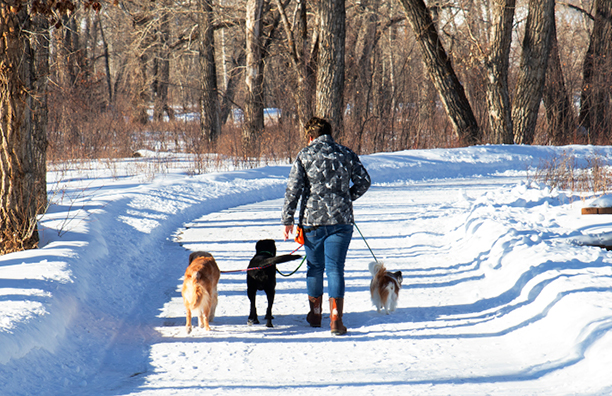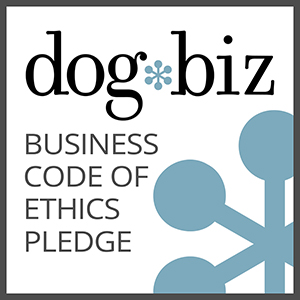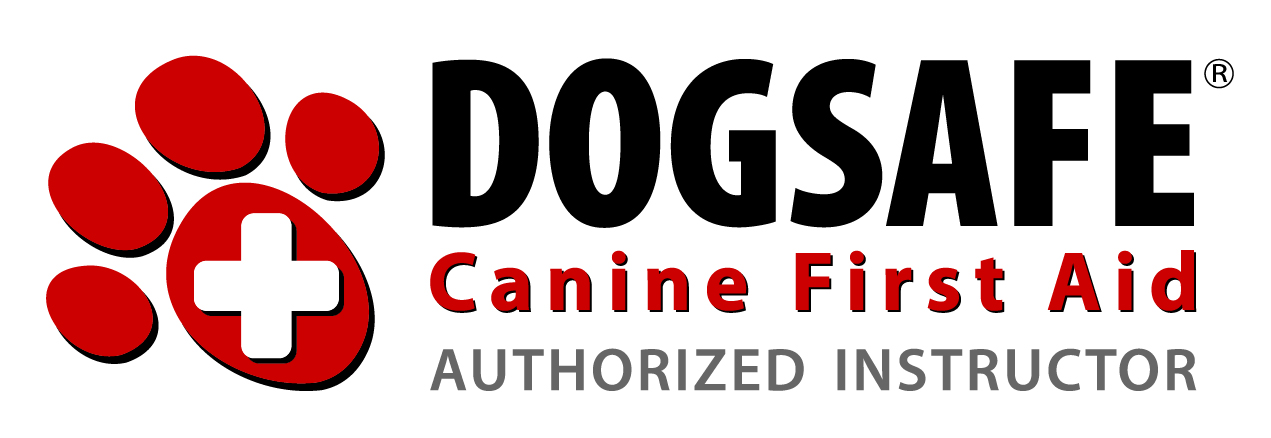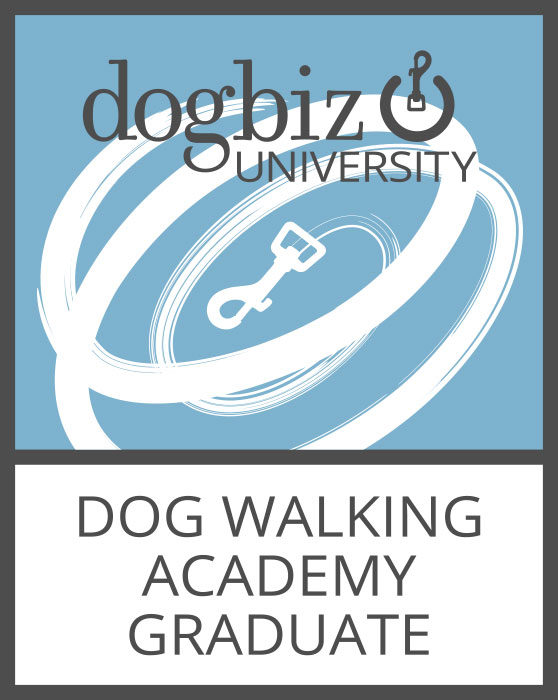Professional dog walking has grown rapidly over the last ten years, and more and more dog lovers enter the field every day. What most dog owners don’t realize is that, because walking is a young business, there is currently no regulating body to dictate the standards of care or qualifications for the work. In short, anyone can call themselves a dog walker, with nothing but a love of dogs to qualify their resume.
Walking dogs, particularly in groups, takes more than the passion we all share for them. There are specialized knowledge and skillsets, as well as ethical business practices, necessary to ensure the safety of the dogs in a walker’s care, as well as the safety and enjoyment of other dogs and humans who share the trails, parks, and sidewalks.
Do you ever find yourself asking questions like does my dog walker know what he or she is doing? How do I choose who to trust with my four-legged family member?
Here are ten questions to ask of anyone you’re considering hiring to walk your dog:
1. Are you trained in canine learning theory and body language?
You want anyone caring for your dog to know how to: a) use scientifically sound, humane training methods; b) read body language and take appropriate steps to prevent fights (and properly break them up when need be); c) judge which dogs to place together for maximum compatibility; and d) handle issues like quarrels over toys, space, or play styles. In short, your walker should have professional knowledge and the skillset to keep the group together and under control, while everyone has a great time. Of course, a love of dogs is imperative — but not enough on its own.
2. How many dogs do you walk at once?
Some cities now regulate the number of dogs a walker can take out together. But most do not. This means some walkers escort six or eight dogs, while others walk as many as 15 and even 20 together in public spaces. Whether on or off-leash, each dog added to a group increases the potential for conflict, injury, lost dogs, and distraction – not to mention making individual attention neigh impossible.
3. Do you walk alone?
A walker’s job is to keep the dogs in his or her care safe and show them a good time. This means keeping vigilant focus. Teaming up with a friend can be fun, but it inevitably reduces attention. If that friend is also a dog walker, going out together combines two sets of dogs, making the pack too large for maximum safety. For best results, your walker should hit the trail with dogs, not other people. For similar reasons, cell phones and other potentially distracting devices should be turned off during dog walks.
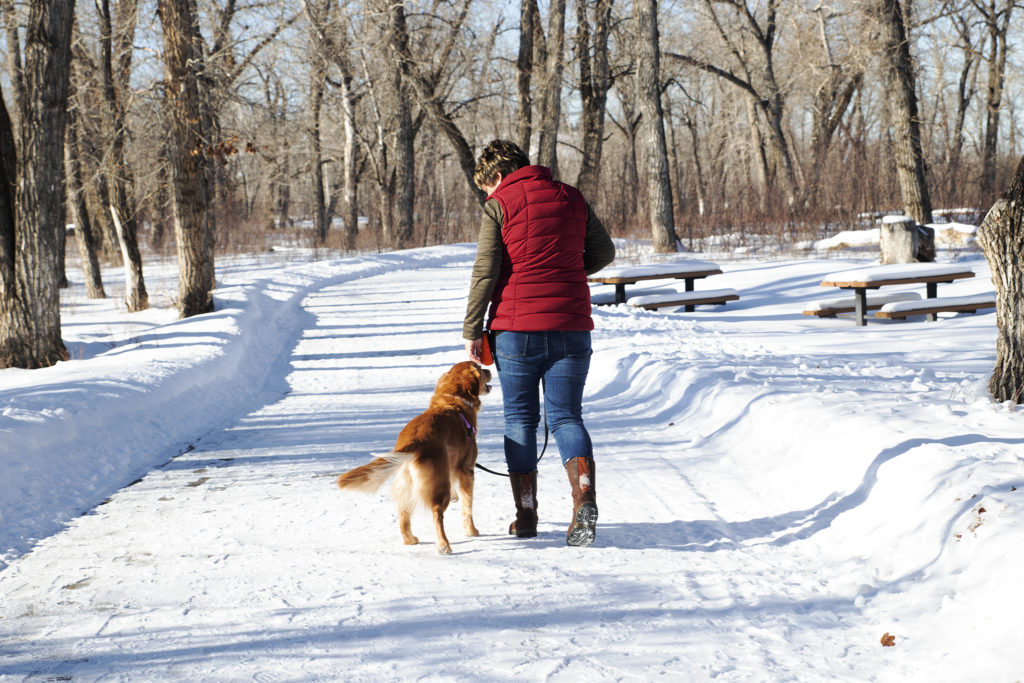
4. Do you do the walking?
Most dog walking companies are very small — the sole proprietor is the sole walker. Some have multiple employees, however. If you’re considering a larger company, it’s important to know how employees are chosen and trained.
5. What size dogs do you walk together?
Small dogs should be grouped with other smalls and the same for big ones. It’s too easy for small dogs to be injured during the course of play with and among their larger peers. It’s safest to stick to the 50% rule. For example, if your dog weighs 30 pounds, his playmates should weigh no more than 60 pounds.
6. How much time do you guarantee on the walk?
If the walking service you’re considering involves car transport, make sure the time quoted is time out of the vehicle, roaming and having fun. The car ride shouldn’t be included.
7. What kind of training methods and equipment do you use?
The American Veterinary Medical Association and the American Society for the Prevention of Cruelty to Animals recommend only positive-reinforcement based training. Your walker should know how to keep a group of dogs under control and safe without the use of choke, prong, and shock collars; citronella or water spray; hitting, shoving, or yelling. The dogs are supposed to have a good time out there. A professional walker shouldn’t need to resort to such measures.
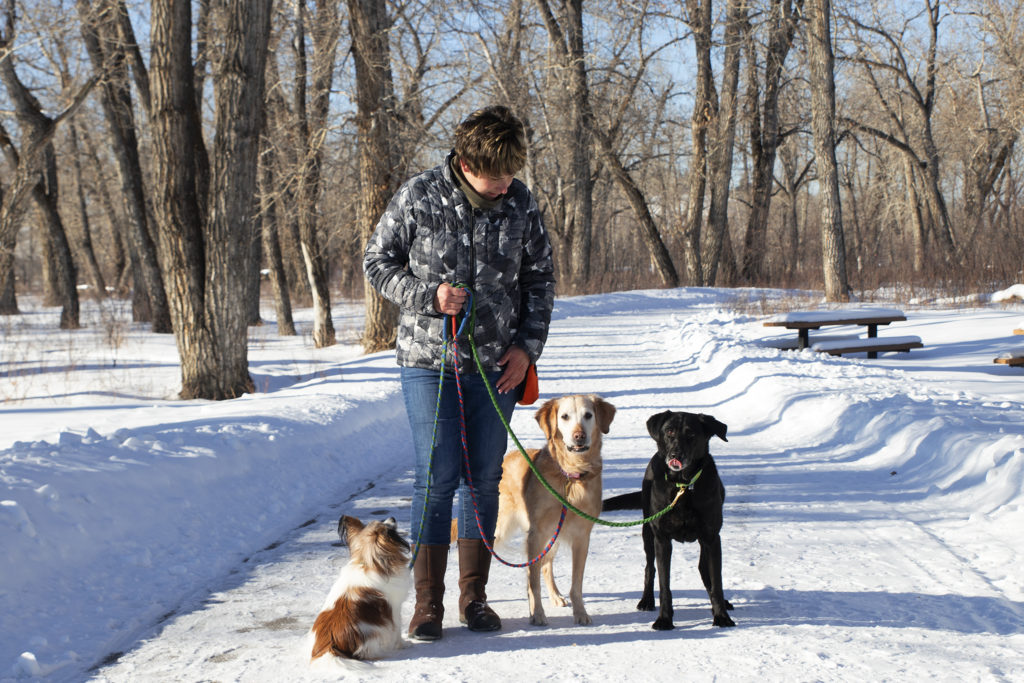
8. Are you licensed, insured, and bonded?
Any walker using the word “professional” should carry dog-walking insurance and have a business license. Any employees should also be bonded as added protection for you and your home.
9. Do you have a professional service contract and references?
You should be asked to sign a contract to help avoid later conflicts and make clear the walkers’ responsibilities and your own as a dog owner.
10. Are you certified to provide canine first aid, and what are your emergency protocols?
What will your walker do if a dog is injured in their care? If your dog is part of a group, what will they do with the rest of the dogs if one member of the group is hurt and requires their full attention? What about if their vehicle breaks down, if a dog is lost, or if a natural disaster occurs? Your walker should always carry emergency information and know the fastest route to the emergency veterinary clinic. Unfortunately, many dog walkers don’t think about these things until they occur—make sure yours has a clear plan.
We are currently seeing an explosion of dog walkers and dog-walking companies, as more busy professionals and families turn to their services for relief from the guilt of a long day at work, and the incredible convenience of coming home to a calm, well-exercised dog. If that’s you, choose your walker wisely and enjoy the benefits and a big dose of peace of mind. Your dog walker should make your dog’s day a blast and your day easier, not add worry.
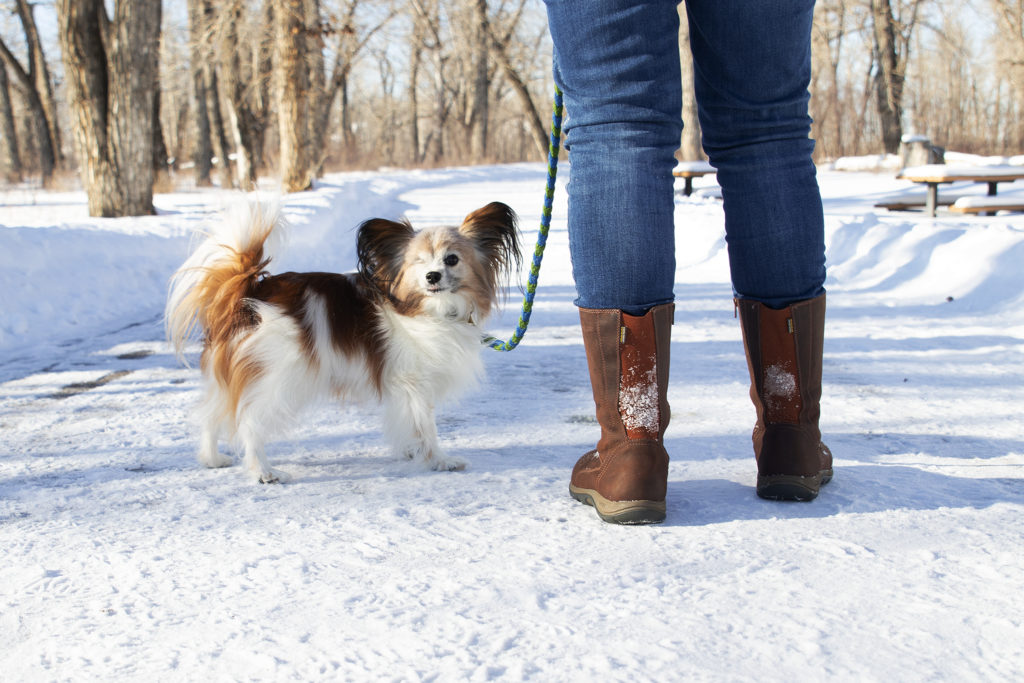
Become a certified dog walker with our three-day dog walker academy course.
